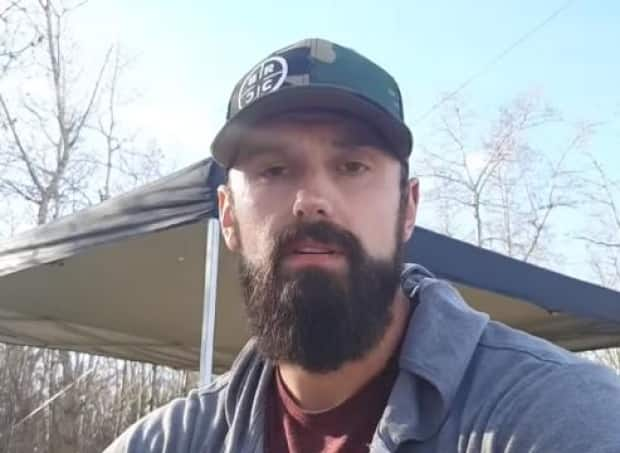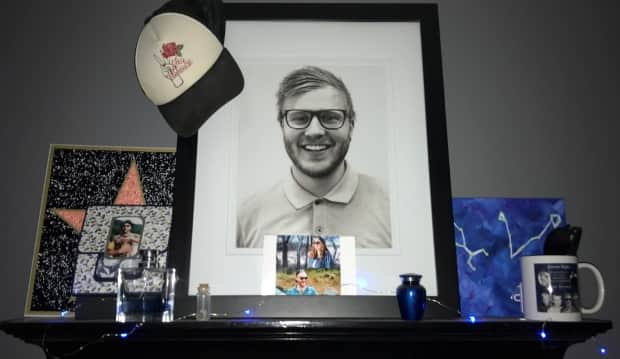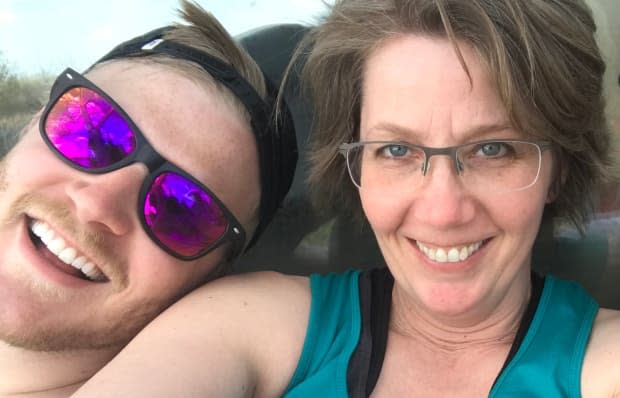'I did not want to shoot Steven,' former officer involved in Steven Rigby death testifies at inquest

Nathan Lynchuk says Steven Rigby was walking toward police and pointing his gun at them when officers fired on Rigby, killing him.
"I did not want to shoot Steven," Lynchuk said Wednesday. "This was a guy who needed help, not a guy who needed to see the end of his life happen that way. He deserved more than that."
Rigby's death is the subject of a week-long coroner's inquest in Saskatoon.
The 27-year-old suffered from mental illness and was in a ditch being watched by nearby RCMP and Saskatoon Police Service (SPS) officers after his car became disabled on the southwest edge of the city on Dec. 22, 2018. Rigby was armed, suicidal and wanted to get into a shootout with police, according to inquest witnesses.
Lynchuk said at the inquest Wednesday that Rigby shot two rounds in the air while standing by his car, stumbled to the ground, got up, then began walking toward officers and fired one or two more rounds "at the level" of officers, who were about 25 to 35 feet away.
Lynchuk himself was by the front bumper of a police tank.
"I saw Steven pointing the firearm at police," Lynchuk said.
That's when Lynchuk fired once on Rigby, he said.
The inquest previously heard Rigby was wounded three times, including in the abdomen.

'Still had his finger on the trigger'
Lynchuk was the first on-scene officer who fired on Rigby to testify during the inquest, which is in its third day. Inquests are not criminal trials, but rather meant to prevent similar deaths from happening in the future.
Lynchuk made headlines two months ago after he said he quit the force because of differences over COVID-19 rules. His departure from the force had nothing to do with the Steven Rigby incident, he said on Wednesday.
In testimony that echoed that of the officer who supervised the scene, Lynchuk said officers approached the wounded Rigby on the ground.
"I could actually see he still had the firearm in his hand and still had his finger on the trigger," Lynchuk said of Rigby.
Lynchuk saw Rigby move again and took cover behind a car.
"I wasn't sure if he was going to start firing at us," Lynchuk said.
Officers were eventually able to disarm Rigby and take him to the hospital, where he was pronounce dead.
Lynchuk remembered Rigby's mother, who was nearby, asking what had happened to her son.

Questions about threat to police
Lawyers questioned Lynchuk about his perception of the threat Rigby posed to officers at the moment of the shooting.
Under further cross examination by Tim Hawryluk, the presiding coroner, Lynchuk said he could not be sure from his periphery where most other officers were positioned at the time of the shooting nor whether they had cover.
Video played at the inquest on Tuesday showed other officers, including Joel Lalonde, who fired his rifle at Rigby, by the back end of the police tank.
Lalonde is scheduled to testify at the inquest Wednesday afternoon.
SPS Const. Macaully Senger, who also fired at Rigby, testified after Lynchuk.
Senger said he used his weapon because Rigby pointed his gun at another officer. He believed he was the first one to shoot at Rigby.
He missed, according to coroner's counsel Robin Ritter.
"Once the vehicle was in the ditch, that scenario played out the way it had to, unfortunately," Senger said.

 Yahoo Movies
Yahoo Movies 